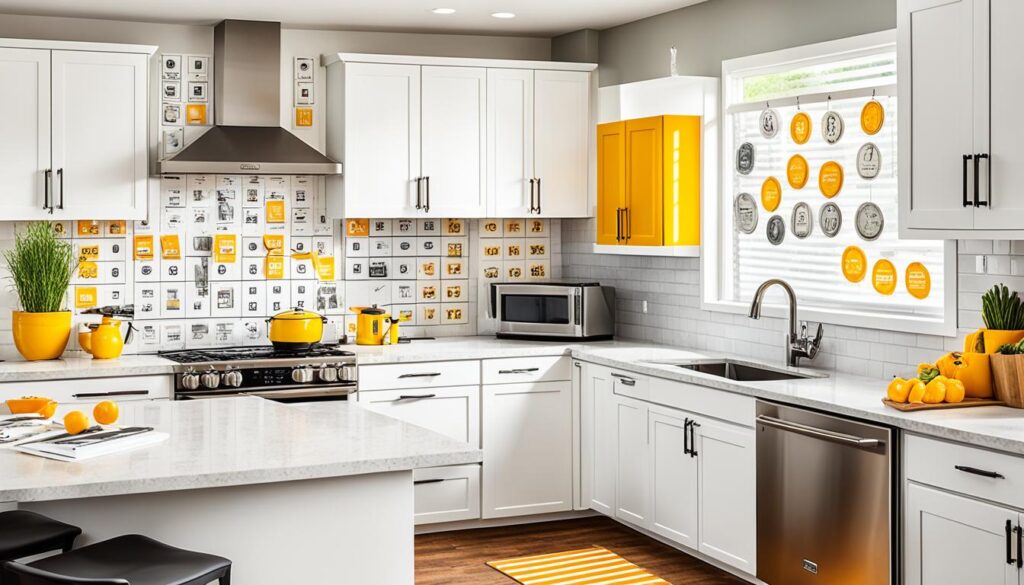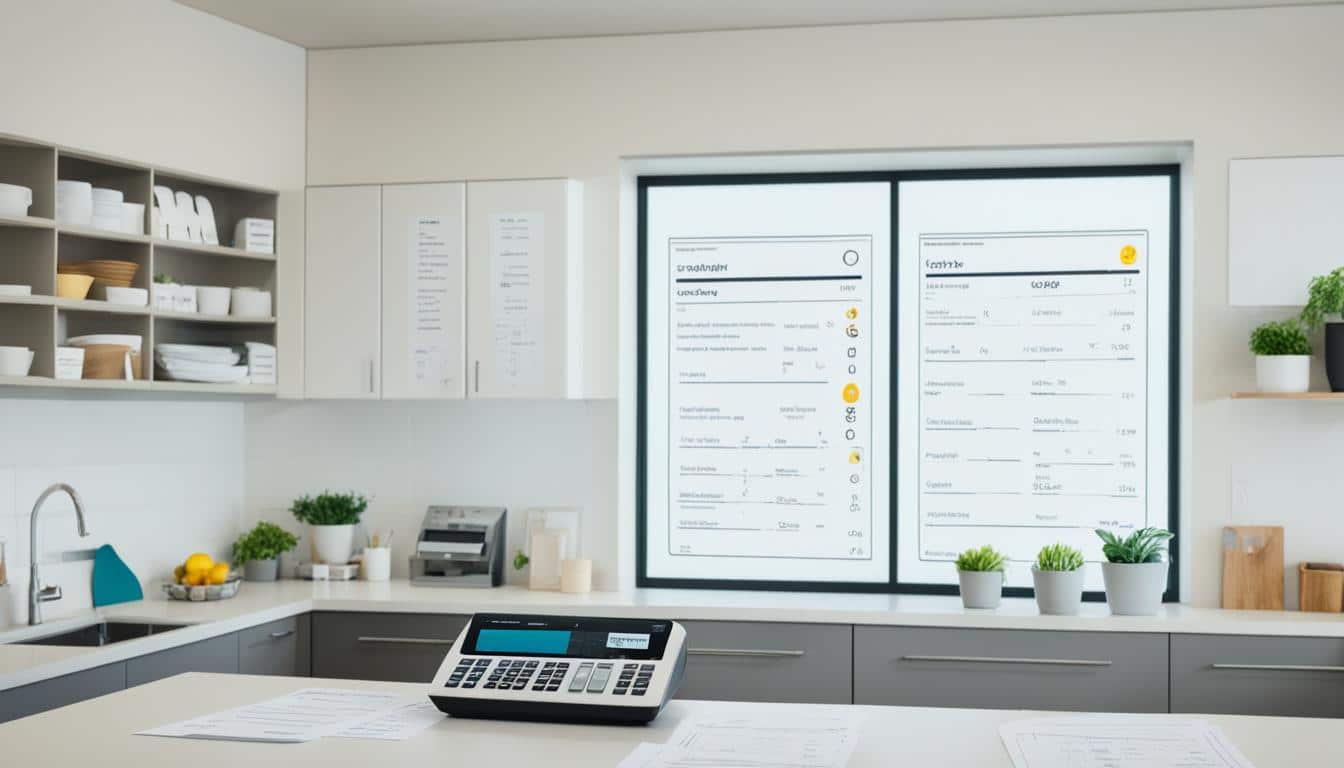Picture this: you walk into your kitchen, ready to whip up a delicious meal for your family. But instead of the vibrant, modern space you’ve always dreamed of, you’re met with outdated countertops, worn-out appliances, and a cramped layout that makes you feel more like you’re in a tiny diner than your own home. It’s time for a kitchen remodel, and you’re determined to create the culinary oasis you’ve always wanted.
But as you start crunching the numbers and mapping out your plans, a nagging question lingers in the back of your mind: Can a kitchen remodel be tax deductible? After all, if you’re going to invest your hard-earned money into transforming your kitchen, it would be nice to get a little something back come tax season.
Well, the good news is that a kitchen remodel does have the potential to be a tax-deductible expense in certain situations. While home improvements for your primary residence are typically not tax-deductible, there are opportunities to earn tax credits for energy-efficient upgrades made during your kitchen remodel. These credits can apply to new appliances and improved heating systems, allowing you to both enhance the functionality of your kitchen and potentially save on your taxes.
So, if you’ve been dreaming of a kitchen that would make Gordon Ramsay jealous, it’s time to dive into the world of kitchen remodel tax deductions. In this article, we’ll reveal the facts and rules surrounding tax deductions for kitchen remodels, providing you with the knowledge you need to navigate the complex world of taxes and create the kitchen of your dreams.
Key Takeaways:
- A kitchen remodel may be tax deductible if you make energy-efficient upgrades as part of the renovation.
- Improvements made to rental properties can be deducted from rental income.
- Depreciation for kitchen remodel costs typically follows the standard 27.5-year period.
- Keeping accurate records and working with professionals can help you maximize your tax savings.
- Consult with a qualified tax professional to determine your eligibility for tax deductions.
Can a Kitchen Remodel Count for a Tax Deduction?
When it comes to tax deductions, a kitchen remodel is a topic that sparks curiosity. Many homeowners wonder if they can claim their kitchen remodel expenses on their taxes and enjoy some tax benefits. While the tax code generally does not classify home improvements for your primary residence as tax-deductible, there are certain situations where a kitchen remodel can indeed count for a tax deduction.
If you’re planning a kitchen remodel and hoping to take advantage of potential tax benefits, it’s important to understand the rules and guidelines that apply. Keep in mind that tax laws can be complex, so consulting with a qualified tax professional is always recommended to ensure you navigate the process correctly.
One important point to note is that making energy-efficient upgrades as part of your kitchen remodel may allow you to qualify for separate tax credits. These credits can provide additional financial incentives and help reduce your overall tax liability. So, if you’re considering energy-efficient appliances, lighting, or HVAC systems as part of your remodel, you may be eligible for these credits.
To better illustrate the potential tax benefits of a kitchen remodel, let’s take a look at the following table:
| Remodel Expense | Tax Deductible Amount |
|---|---|
| New energy-efficient refrigerator | $500 (eligible for tax credit) |
| Installation of energy-saving LED lights | $200 (eligible for tax credit) |
| Upgraded insulation for improved energy efficiency | $1,000 (eligible for tax credit) |
As shown in the table above, specific expenses related to energy-efficient upgrades in your kitchen remodel can be tax deductible. By keeping track of these eligible expenses and understanding the tax credits available to you, you can reduce the amount of taxes you owe while enjoying the benefits of a newly renovated kitchen.
Remember, the key to claiming tax deductions for your kitchen remodel is to ensure you meet the eligibility criteria and accurately document your expenses. Keeping receipts, records, and working with professionals who specialize in tax matters will go a long way in maximizing your tax savings and ensuring compliance with IRS rules.
In the end, a kitchen remodel can offer more than just aesthetic improvements; it can also provide potential tax benefits if you navigate the process wisely. By exploring energy-efficient options and understanding the available tax credits, you can transform your kitchen and potentially save on your tax bill at the same time.
Real Estate Situations Where a Remodel May Be Tax Deductible
When it comes to tax deductions for kitchen remodel expenses, there are specific real estate situations that may make you eligible for tax benefits. If you own a rental property, for example, you can deduct the cost of a kitchen remodel from the rental income, proportionate to the portion of the house being used for rental purposes.
Let’s say you own a duplex, and one unit is rented out while you live in the other. If you renovate the kitchen in the rental unit, you can deduct the expenses for that particular unit. This deduction will reduce the rental income that is subject to tax, ultimately lowering your overall tax liability.
Additionally, if you decide to sell your home, any improvements or remodels you made over the years can be factored into your cost basis. By including these expenses in your cost basis, you increase the amount of money you spent on the property. As a result, your profit from selling the home decreases, potentially reducing the amount of profit subject to taxes.
For example, let’s say you purchased a house for $300,000 and invested $50,000 in a kitchen remodel. If you sell the house for $400,000, instead of paying taxes on a $100,000 profit, you would only pay taxes on a $50,000 profit, thanks to factoring in the kitchen remodel expenses.
Listed below is an example showing how a kitchen remodel can impact your cost basis when selling a property:
| Cost Basis Components | Amount |
|---|---|
| Purchase Price | $300,000 |
| Kitchen Remodel | $50,000 |
| Total Cost Basis | $350,000 |
| Selling Price | $400,000 |
| Profit Subject to Taxes | $50,000 |
By taking advantage of these tax deductions and cost basis adjustments, you can potentially save money on taxes while improving your property. However, it is crucial to consult with a qualified tax professional or financial advisor to ensure you meet the specific requirements and guidelines set by the IRS. They can provide personalized advice based on your unique situation, helping you make informed decisions and maximize your tax savings.

How Long Do You Depreciate a Kitchen Remodel?
Depreciation for the costs of kitchen renovations and upgrades is similar to the depreciation process for owning a rental property. The standard period for depreciating home improvements is 27.5 years. However, individual appliances with shorter lifespans may have shorter depreciation periods. This means that the cost of your kitchen remodel can be deducted over an extended period of time, reducing your taxable income.
| Appliance | Depreciation Period |
|---|---|
| Refrigerator | 15 years |
| Oven/Stove | 12 years |
| Dishwasher | 10 years |
| Microwave | 7 years |
By taking advantage of the depreciation period, you can spread out the tax benefits of your kitchen remodel over several years, providing long-term savings. This can be especially beneficial if you have made significant investments in high-quality appliances or other improvements that have a longer lifespan.
Example:
Let’s say you spent $30,000 on a kitchen remodel, including $5,000 on a new refrigerator, $4,000 on an oven/stove, $3,000 on a dishwasher, and $2,000 on a microwave. Using the depreciation period, here’s how the tax deductions could be spread out:
- $30,000 / 27.5 years = $1,090.91 per year for the overall remodel cost
- $5,000 / 15 years = $333.33 per year for the refrigerator
- $4,000 / 12 years = $333.33 per year for the oven/stove
- $3,000 / 10 years = $300 per year for the dishwasher
- $2,000 / 7 years = $285.71 per year for the microwave
By depreciating the costs over time, you can save money on your taxes each year. This can help offset the initial expenses of your kitchen remodel and provide ongoing financial benefits.
Counting the Ways a Kitchen Remodel Can Benefit You
While many people focus on the aesthetic benefits of a kitchen remodel, it’s important to consider the potential tax benefits as well. Making improvements to your kitchen can increase the overall value of your home, which can directly impact the amount of profit you make if you decide to sell. By keeping receipts, records, and documentation of your home improvement expenses, you can potentially reduce the taxes you owe on the profits from selling your home.
Did you know that a kitchen remodel can offer tax benefits on top of enhancing your living space? It’s true! By taking advantage of the tax benefits of kitchen remodel and deducting eligible expenses, you can make your kitchen transformation even more rewarding. Let’s explore some of the tax benefits you may be eligible for.
- 1. Deductible Expenses: Certain expenses related to your kitchen remodel may be tax deductible, allowing you to reduce your taxable income. These deductible expenses can include materials, labor costs, and even permit fees. By keeping detailed records and consulting with a tax professional, you can identify eligible expenses and maximize your deductions.
- 2. Tax Credits for Energy-Efficient Upgrades: If your kitchen remodel includes energy-efficient upgrades such as installing energy-saving appliances or improving insulation, you may be eligible for tax credits. These credits can help offset the cost of your remodel by reducing your tax liability. Be sure to check the IRS guidelines for eligible energy-efficient upgrades and consult with a tax professional for guidance.
- 3. Increased Home Value: A well-executed kitchen remodel can significantly increase the value of your home. When it comes time to sell, the higher value can result in greater profits. By documenting your remodeling expenses, you’ll have the evidence needed to adjust your cost basis and potentially reduce your capital gains tax.
Remember, the tax benefits of a kitchen remodel can vary depending on your individual circumstances and the specific regulations in your area. Consult with a tax professional to ensure you fully understand the deductible expenses and credits available to you.
By combining the aesthetic improvements of a kitchen remodel with the potential tax benefits, you’re making a smart investment in your home and your financial future.

How to Maximize Your Tax Savings with a Kitchen Remodel
To truly make the most out of your kitchen remodel in terms of tax savings, it’s crucial to be proactive and organized. By carefully tracking your expenses and maintaining proper documentation, you can ensure that you take advantage of all available tax deductions and credits.
Here are some key steps to help you maximize your tax savings:
- Keep detailed records: Maintain receipts, invoices, and any other documentation that proves the costs incurred during your kitchen remodel. This includes materials, labor, and any other related expenses.
- Separate deductible expenses: Differentiate between the costs that are eligible for tax deductions and those that are not. For example, while the cost of energy-efficient appliances may be tax-deductible, the expenses for purely aesthetic upgrades may not qualify.
- Consult a tax professional: Seek guidance from a qualified tax professional who specializes in home remodeling tax deductions. They can provide personalized advice based on your specific situation and help you navigate the complex tax regulations.
- Utilize tax forms: Familiarize yourself with relevant IRS forms, such as Form 8283 for charitable donations of building materials. If you’ve donated any materials during your remodel, make sure to fill out the form accurately to claim the associated tax benefits.
- Hire professional appraisers: If your remodel includes substantial improvements that increase the value of your home, consider hiring a professional appraiser. They can assess the before and after value of your property, providing valuable documentation for potential tax savings.
By following these steps, you can ensure that you’re maximizing your tax savings and making the most of your kitchen remodel. Remember, it’s always recommended to consult with a tax professional to receive personalized advice tailored to your unique circumstances.

| Expenses | Tax-Deductible or Not |
|---|---|
| Cost of energy-efficient appliances | Yes |
| Labor expenses | No |
| Materials for aesthetic upgrades | No |
| Donations of building materials | Yes |
| Professional appraiser’s fees | No |
Additional Considerations for Kitchen Remodel Tax Deductions
When it comes to tax deductions for your kitchen remodel, it’s essential to navigate the complex IRS rules on kitchen remodel tax deduction. Consulting with a qualified tax professional or financial advisor is key to determining your specific eligibility. While there are general guidelines provided by the IRS, remember that every individual’s situation is unique, so personalized advice is crucial.
By working with professionals and gaining a deep understanding of the specific tax rules and deductions related to your kitchen upgrade, you can make informed decisions and potentially maximize your tax savings. The IRS provides valuable resources and publications that can help you navigate the intricacies of tax deductions for your kitchen remodel.
However, don’t let the complexity discourage you. With the right guidance and knowledge, you can confidently explore the potential tax benefits of your kitchen remodel. So, take the time to educate yourself, seek professional advice, and ensure you comply with the IRS regulations to make the most of your kitchen upgrade tax deductible.








